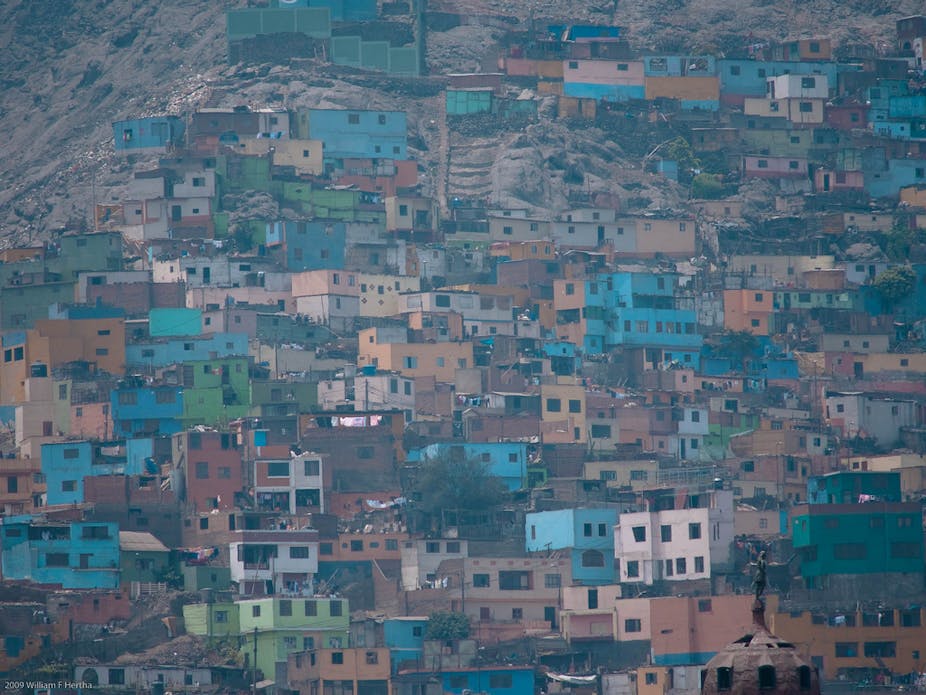The secretary-general of the United Nations’ (first) Earth Summit in Rio de Janeiro, Maurice Strong, famously declared that if our planet is to remain a hospitable and sustainable home for the human species, the battle would be won or lost in major urban areas.
As world leaders confer at the second Earth summit (Rio+20), this message remains an essential one. The preparations for Rio+20 have identified sustainable cities as a priority issue for the summit.
Since 2008, cities have been the dominant habitat for the human species. For the first time in the history of human life on Earth, more people now live in cities than in the countryside. Many countries currently face urbanisation of unprecedented pace and scale: for example China, India, and others across Asia, South America and Africa.
By the middle of the 21st Century, the UN estimates we will need to house 2-3 billion more people in cities. That’s more than 1 million people every week. Most of this population growth will be in medium-sized cities (populations between 500,000 and 1 million) in low and middle-income countries.
People are attracted to live in cities for varied reasons: work, education, social and cultural reasons, and access to healthcare. In fact, as the G20 economic summit in Mexico draws to a close, it is noteworthy that the current financial instability in Eurozone countries is causing some people to relocate from cities to rural areas in search of work, food security and housing. This highlights the potential for changing patterns of human settlement in future because of interdependencies between our global social, economic and environmental circumstances.
Cities can be great places to live; however living in cities can also pose risks to health.
The World Health Organization and UN-HABITAT (the UN’s urban settlements program) recently published a major report on health and cities. The report highlights the challenges and opportunities urbanisation brings and its effects on health and wellbeing. It reveals urban health inequities that result from different circumstances in which people grow, live, and work, and the health systems they can access.
While millions of people in low-income cities still don’t have access to clean water, sanitation, adequate housing, or electricity - contributing to a continuing burden from diarrhoeal disease and respiratory infections - cities also confront epidemics of non-communicable diseases such as heart disease, diabetes, chronic lung disease, cancers and depression. In recent years, the UN has recognised these non-communicable diseases as barriers to sustainable development.
Beyond cities, ecosystems are the planet’s life support systems – for people and all other forms of life. Ultimately, human health and survival are entirely dependent on the health of ecosystems because the human body has a fundamental need for food, water, clean air and relative climatic constancy.
Cities concentrate people and economic activity and, therefore, they also concentrate resource consumption and waste production. This means that the way cities work can affect the health of ecosystems. It follows that cities must be planned, designed, developed and managed to protect both the health of ecosystems, and the health of people.
If we build up (create denser cities) rather than out (urban sprawl), we can protect fertile agricultural land for future food growing. If we walk, cycle and use mass transit in cities, rather than the private car, we will consume less fossil fuel energy in every trip. At the same time, we will reduce motor vehicle emissions and we will get more physical activity, which is good for health and wellbeing.
While urbanisation presents challenges, it also provides considerable opportunities. The International Council for Science has recently launched a new global interdisciplinary science program on health and wellbeing in the changing urban environment using systems approaches.
The program aims to bring scientists together with counterparts in government, industry and communities to tackle critical urban policy and planning questions. The approach will identify leverage points for intervention, while recognising causes of policy resistance and potential unintended consequences of such interventions.
The new program will strive for “co-creation” of knowledge to improve decision-making; an approach that acknowledges the expertise of those who make decisions on a daily basis, seeking new insights through effective applied research.
Human health and wellbeing, on a sustainable basis, should be the primary objective of urban policy and planning. To achieve this objective, an important starting point is an understanding of the universal health needs of the human species which have been clearly identified by Stephen Boyden, an eminent human ecologist.
There are compelling reasons for urgent action; both for the sake of the health of future generations, and for the sake of our own health right now.
By the time of the next Earth Summit, the current window of opportunity to do things differently in cities will have closed. We will have already housed many of those extra billions of urban residents and it will become a question of retrofitting cities for sustainable ways of living. This would be even more difficult and expensive.
Beyond Rio+20, we must ensure that our cities are healthy and sustainable human habitat. There is a role for us all in this effort: for urban planners, public health workers, engineers, land developers, elected officials and anyone who has a stake in the future of our cities.
This article is an edited version of an address to the ICSU forum on science, technology and innovation for sustainable development in Rio de Janeiro, Brazil, 11-15 June 2012.

